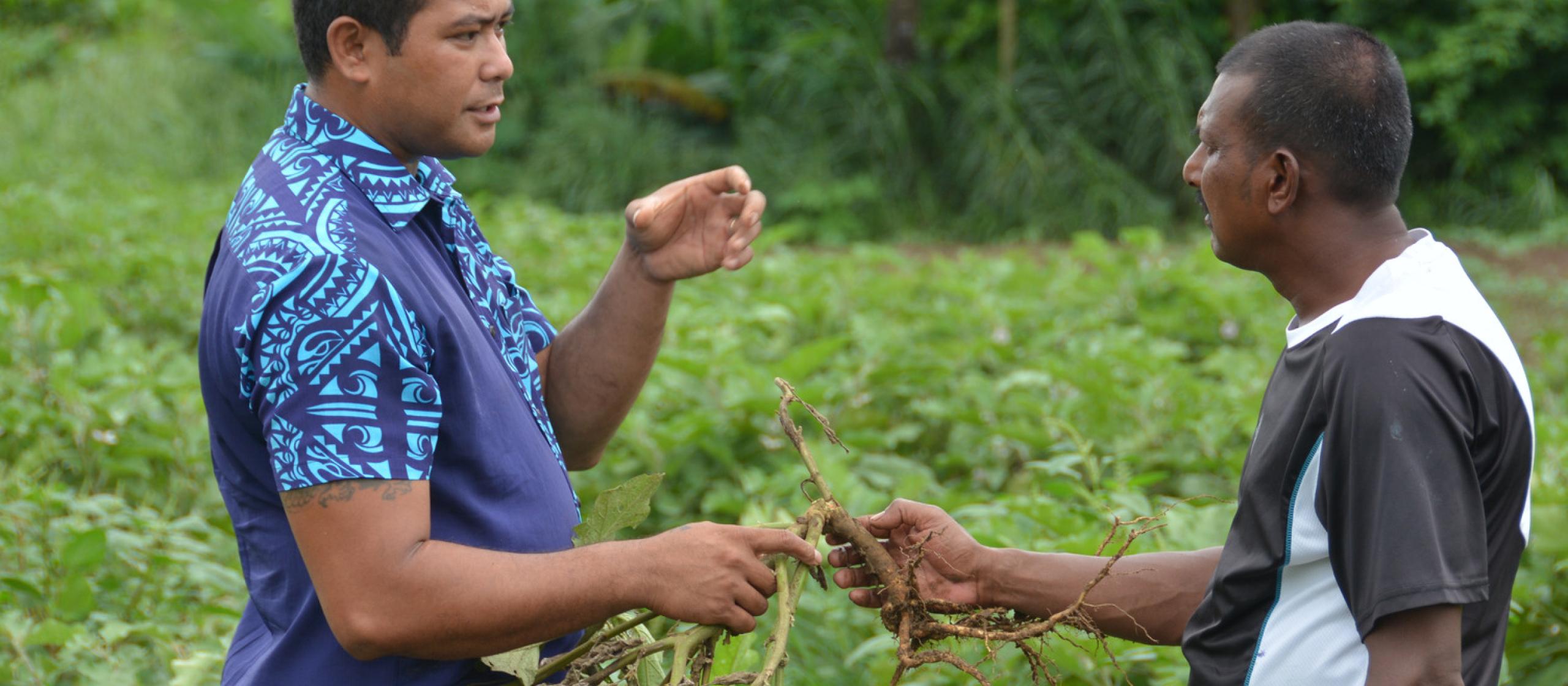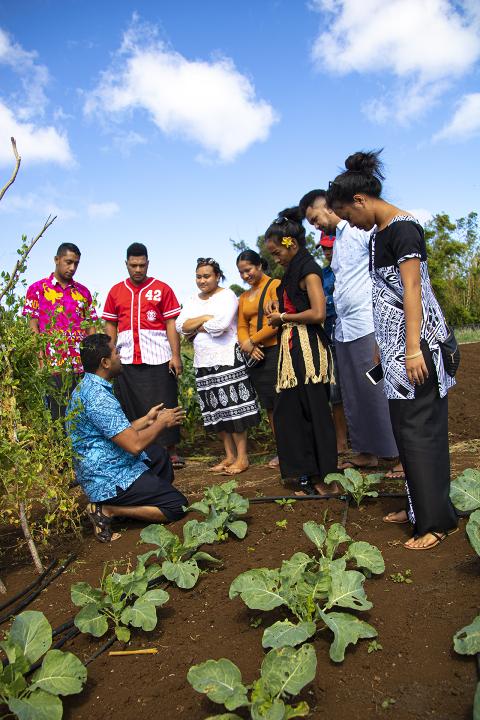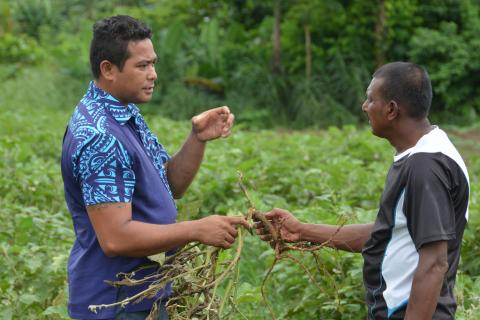- HomeHome
-
About ACIAR
- Our work
- Our people
-
Corporate information
- ACIAR Audit Committee
- Commission for International Agricultural Research
- Policy Advisory Council
- Agency reviews
- Executive remuneration disclosure
- Freedom of information (FOI)
- Gifts and benefits register
- Information publication scheme
- List of new agency files
- Contracts
- Legal services expenditure
- Privacy impact assessment register
- Commonwealth Child Safe Framework
- Benefits to Australia
- Careers
- 40 years of ACIAR
-
What we do
- Programs
- Cross-cutting areas
- Resources
- Where we work
-
Funding
- Research projects
- Fellowships
-
Scholarships
- John Allwright FellowshipScholarships to study in Australia for ACIAR partner country scientists to have Australian postgraduate qualifications
- ACIAR Pacific Agriculture Scholarships and Support and Climate Resilience Program
- Alumni Research Support Facility
- Publications
- News and Outreach
Date released
03 August 2020
Key points
- ACIAR builds the capacity of individuals and institutions in developing countries to carry out agricultural research projects.
- The John Allwright Fellowship (JAF) provides scientists from partner countries involved in ACIAR research projects with the opportunity to obtain postgraduate qualifications at an Australian tertiary institution.
A capacity-building initiative of ACIAR that is supported by the Australian Department of Foreign Affairs and Trade, JAFs provide scientists from ACIAR partner countries involved in ACIAR research projects with the opportunity to obtain a postgraduate qualification from an Australian institution.
Established in the late 1990s, the fellowship program has seen 495 people graduate with PhD or Masters’ degrees. And, since 2017, in alignment with the ACIAR Gender Equity Policy and Strategy 2017–2022, women comprise at least half of all JAF recipients.
Championing Pacific plant health
Fijian plant health champion Mr Mani Mua has been selected to receive a JAF in 2020 in recognition of his work responding to emerging horticultural pests and diseases in the Pacific.
Mr Mua is one of four successful applicants from the Pacific who were awarded a JAF as part of the 2020 intake. In total 12 people were awarded JAFs to begin this year; however, with the world now battling COVID-19 most of these fellows will commence their studies in 2021.
For Mr Mua, 2020 will nonetheless hold special importance because it is the International Year of Plant Health, providing a platform to reinforce the need to better protect the Pacific region from biohazards and other threats to regional agriculture.
‘I am very grateful to be selected as a JAF recipient through ACIAR to pursue my doctorate on plant health and insect resistance management,’ he says.
It is this passion and dedication that drive the 33-year-old, who is based in Suva, Fiji. A Plant Health Coordinator with the Pacific Community (SPC), Mr Mua has been part of an ACIAR project with the University of Queensland and the SPC Land and Resources Division for the past five years and is at the forefront in responding to emerging horticultural pests and diseases in Fiji, Samoa, Tonga and Solomon Islands.
With ACIAR support, Mr Mua is designing training activities to build the capacity of plant health trainees within these countries to identify common pests and diseases that affect horticulture.
‘It is very inspiring to work with scientists and specialists from ACIAR and various Australian universities,’ Mr Mua says. ‘I have learnt a lot from ACIAR specialists, the project team leaders and the regional network of farmers and plant health trainees.
The peer-to-peer learning approach encouraged me to apply for the JAF.’
SPC Regional Plant Health Advisor Mr Fereti Atumurirava adds that SPC is very proud of Mr Mua for being accepted to complete a JAF.
‘Mani is a great asset and we are very grateful that ACIAR has given him the opportunity to formally enhance his skills by pursuing a doctorate,’ Mr Atumurirava says.
‘ACIAR is a unique partner because it not only focuses on the projects but also formally builds the capacity of its partners in agricultural research, therefore ensuring that local and regional organisations retain upskilled staff.’
Healthy chickens, healthy people
For JAF recipient and University of Sydney PhD candidate Mr Elpidius Rukambile, the thrust of his research has been improving human health by examining chicken health and husbandry in Tanzania.
When he applied for a JAF Mr Rukambile was working on the ACIAR-supported project ‘Strengthening food and nutrition security through family poultry and crop integration in Tanzania and Zambia’. The focus of the project was to improve poultry and crop production through working with the local women. However, Mr Rukambile observed another problem.
not recognise that the faeces of the chickens may have been the cause. They also thought that diarrhoea was just a normal part of growing up—they didn’t realise it was preventable and that hygiene played a role,’ Mr Rukambile says.
‘I saw that the chickens were living inside the houses of the people—inside the kitchens and where they were sleeping—and sharing water from the same source.’
Mr Rukambile applied for and was granted a JAF, which he commenced in 2016. He focused on three wards located in the semi-arid zone in the Dodoma and Singida regions in central Tanzania, where he organised focus groups and interviews to explore people’s knowledge of hygiene and to create a better understanding of the animal husbandry challenges they faced. Screening for some diarrhoea related pathogens in chickens was also part of the study to determine the public health risk associated with living close to chickens in environments with poor sanitation and hygiene.
He discovered that one reason people didn’t want to put their chickens outside was that they could be stolen and/or preyed on.
Instead, practical strategies like setting aside a room inside the house for chickens and cleaning it daily, concealing kitchen utensils inside a plastic box so chickens didn’t touch them, and storing water inside a container with a narrow opening and
lid so chickens couldn’t access it—are all options that are more feasible. Importantly, helping people to understand the causes and occurrence of diarrhoea, and the role sanitation and hygiene plays, is an important preliminary intervention towards controlling childhood diarrhoea.
Future outlook
Mr Rukambile will soon complete his PhD and return to Tanzania to work for the Ministry of Livestock and Fisheries, but this time he wants to integrate animal husbandry research into human health research to improve people’s living conditions and
health outcomes.
‘While it’s good to increase poultry production, if children are suffering from diarrhoea, the benefits are limited,’ Mr Rukambile says. ‘We need to look at the bigger health picture and improve poultry husbandry and human health hand in hand; they go together.
‘We’ve been missing a lot of opportunities to improve people’s life because we segregated our research. We need to think and work differently and take a multidisciplinary approach.’
Mr Rukambile has also been invited to join the JAF Executive Leadership Program that helps to build participants’ leadership, people, communication, finance and project management skills. ACIAR General Manager of Outreach and CapacityBuilding, Ms Eleanor Dean, says the goal of the JAFs is for ‘fellows to return to their home country with both their postgraduate qualification and the skills they need to be leaders in their employing institution’.
Ms Dean says it’s a great privilege to meet fellows during their time in Australia and to learn about their chosen areas of study.
‘Fellows live in Australia and experience the Australian way of life while completing their studies,’ she says. ‘However, for the 2020 batch of fellows, their arrival in Australia will be postponed due to travel restrictions caused by COVID-19. We will nevertheless stay in touch with them and look at how we can support their development in the meantime.’
Mr Mua plans to undertake his doctorate at the University of Queensland and is expected to complete his studies and research within four years.
‘The future is indeed exciting for me. I can’t wait to learn more about plant health and I look forward to coming back and sharing my knowledge and skills with the regional network,’ Mr Mua says.
He says he hopes his JAF studies will help farmers and plant health specialists address issues such as twospotted spider mite—an arachnid pest which is gaining resistance to pesticides and affecting most fruit crops in the Pacific region.
ACIAR is also set to commence a ‘tracer’ study to look back at the progress of the careers and broader lives of past JAF recipients and trace their trajectories since their participation in the program. Through a survey and interviews with past fellows, ACIAR hopes to build a picture of the impact of these fellowships. ACIAR will be in contact with individuals who have completed a JAF in the past decade.





